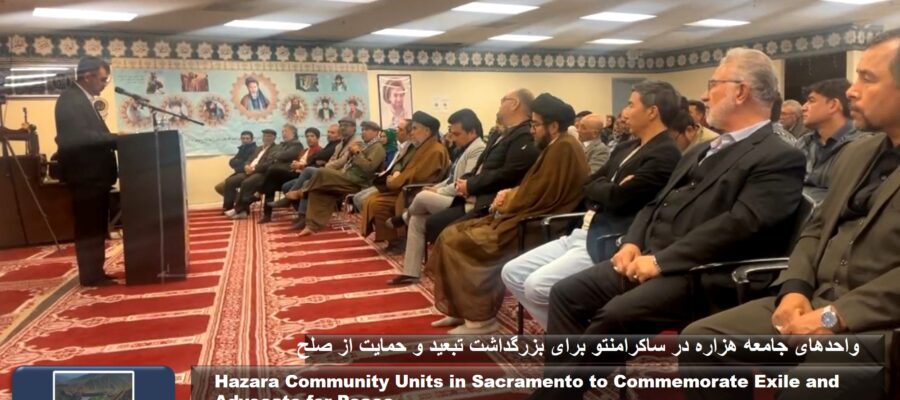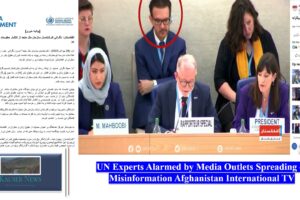In an emotional and powerful gathering in Sacramento on March 9, 2024, the Hazara community from Afghanistan, predominantly arriving through the Special Immigrant Visa (SIV) program and evacuation initiatives, came together to send a strong message and commemorate their exile from their homeland. The event, organized by the Hazara diaspora in the United States, took a moment to reflect on the past, drawing parallels with a historical incident that occurred 95 years ago during the Pashtun Kingdom in Afghanistan.
The Hazara people have been targeted by various insurgent groups and internal conflicts in Afghanistan over the past four decades. Whether it be the Taliban or other extremist factions, Hazaras have often found themselves in the crossfire, facing persecution due to their ethnicity, religious beliefs, and progressive values. The Sacramento event served as a platform for the Hazara diaspora to shed light on these issues and call for global attention and support.
The Hazara people, a Persian-speaking ethnic group primarily residing in central Afghanistan, have faced persecution, discrimination, and violence for the past four decades. Their plight intensified after the Taliban’s rise to power in the 2021, leading to mass displacement, targeted attacks, and widespread human rights abuses. The situation prompted many Hazaras to seek refuge in various countries, with the United States being a significant destination through programs like SIV and evacuation efforts.

The SIV program allowed Afghan citizens who worked with the U.S. government and faced threats as a result to seek refuge in the United States. Additionally, the evacuation efforts in the aftermath of the Taliban’s takeover in 2021 facilitated the escape of numerous Afghan citizens, including Hazaras, who were at risk due to their association with the U.S. and their commitment to a more inclusive and progressive Afghanistan.
The gathering in Sacramento served as a poignant reminder of the Hazara community’s resilience and determination to forge a new beginning in a foreign land. Community leaders and speakers highlighted the struggles they faced in Afghanistan, acknowledging the risks taken to escape and the challenges of starting anew in a different cultural context.
During the event, some speakers referenced a historical incident that occurred 95 years ago during the Pashtun Kingdom in Afghanistan. Without delving into specific details, the Hazara community drew parallels between the past and the present, emphasizing the cyclical nature of oppression and the importance of standing together against injustice.
The incident alluded to likely pertains to the Pashtun King’s actions against the Hazara people in the early 20th century. Historically marginalized and subjected to discriminatory policies, the Hazaras faced severe repression under Pashtun rulers. The event, is shrouded in complexity and nuances, making it a sensitive topic within Afghan history.
While the Hazara community refrained from explicitly discussing the historical incident during the ceremony, it is evident that they employed this historical reference to convey a powerful message. By drawing parallels with a time of adversity from the past, the Hazaras highlighted the enduring struggles they have faced and underscored the need for international support to address the ongoing challenges in Afghanistan.
The Hazara community’s use of head speeches during the event reflects their determination to advocate for justice and equality. These speeches, delivered with conviction and emotion, emphasized the need for the international community to recognize the Hazara struggle and work towards a more inclusive and peaceful Afghanistan.
Kauser News, seeking insights into this historical reference, attempted to approach speakers for comments. However, the organizers and speakers of the ceremony remained tight-lipped, refusing to elaborate on the specific incident during the Pashtun Kingdom. This deliberate silence added an air of mystery to the event, prompting observers to delve into historical records to understand the significance of the chosen reference.





